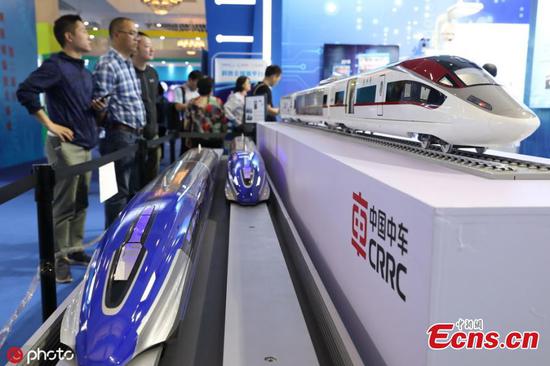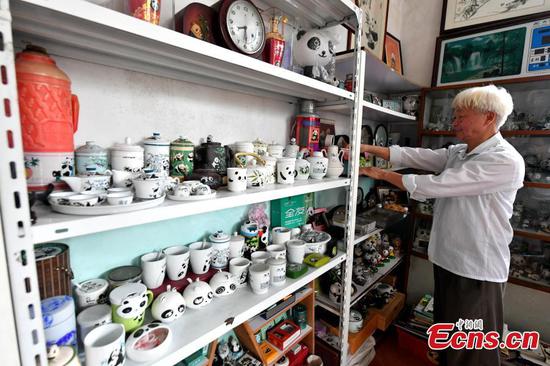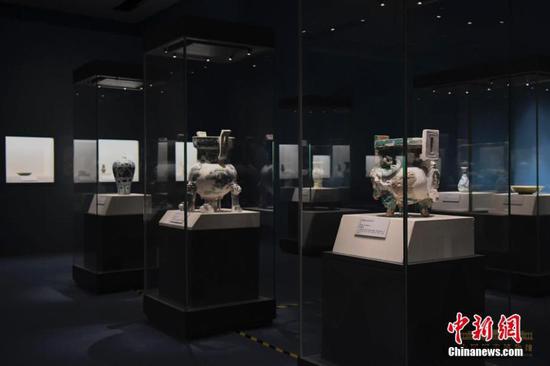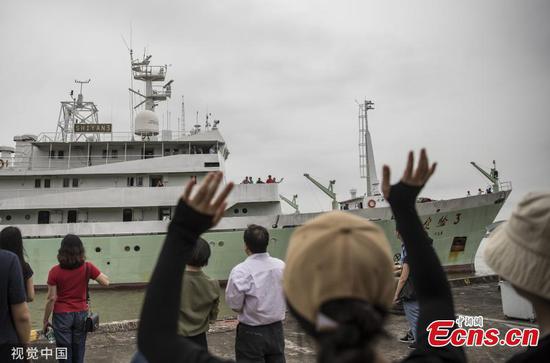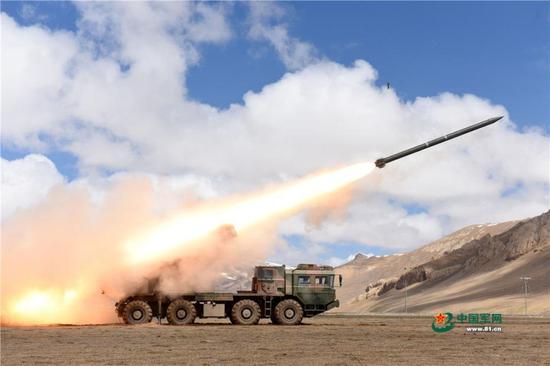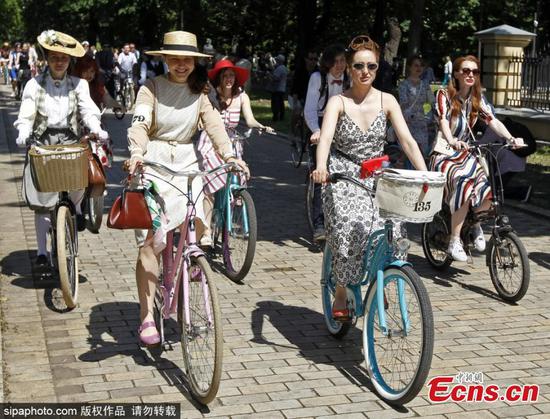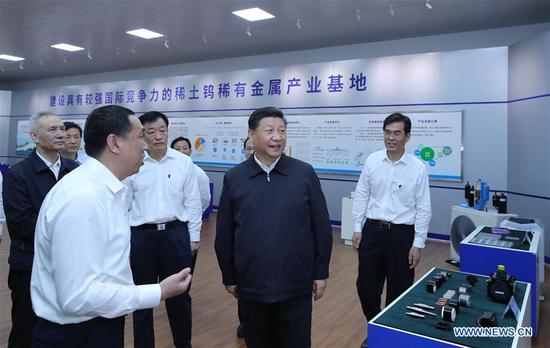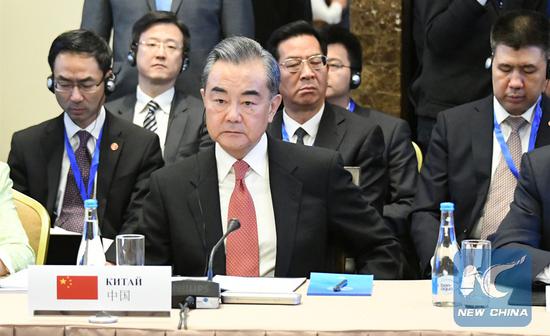
Chinese State Councilor and Foreign Minister Wang Yi attends the meeting of the Shanghai Cooperation Organization Council of Foreign Ministers in Bishkek, Kyrgyzstan, May 22, 2019. (Xinhua/Li Yong)
Foreign ministers of the Shanghai Cooperation Organization (SCO) member states said Wednesday that they advocate a multipolar world and oppose unilateralism and trade protectionism.
The top diplomats of India, Kazakhstan, China, Kyrgyzstan, Pakistan, Russia, Tajikistan and Uzbekistan, as well as SCO Secretary General Vladimirov Norov and Dzhumakhon Giyosov, director of the Executive Committee of the SCO Regional Anti-Terrorist Structure (RATS), attended a ministerial meeting on Wednesday in Bishkek.
The ministers said in a press release that the top priority of the international community is to establish a multipolar world in accordance with common interests and based on the norms of international law as well as principles of respecting each other's interests, multilateralism, equal and indivisible security and rejection to confrontation and conflict.
The ministers called for common aspirations of promoting the building of a new type of international relations, featuring mutual respect, equality, justice and win-win cooperation, and building a community with a shared future for mankind.
They said it is necessary to improve global economic governance system and develop trade and investment cooperation.
The World Trade Organization remains the important and only platform for global trade negotiations, they stressed.
They oppose any form of unilateralism and trade protectionism, and agreed to conduct close coordination to establish an open world economy and consolidate the multilateral trade regime that is open, inclusive, transparent, non-discriminatory and based on rules.
The foreign ministers of Kazakhstan, Kyrgyzstan, Pakistan, Russia, Tajikistan and Uzbekistan reiterated their support for the China-proposed Belt and Road Initiative (BRI) and welcomed the outcomes of the second Belt and Road Forum for International Cooperation held last month in Beijing.
They acknowledged the efforts of relevant parties to cooperate under the BRI and align the BRI with the Eurasian Economic Union.
The foreign ministers supported tapping the potential of national and international institutions to build up broad, open, mutually beneficial and equal partnerships in the SCO area.
They agreed to improve the legal basis for cooperation in trade, finance, science and technology and people-to-people exchanges.
The diplomats urged the international community to pay due attention to global threats and challenges, including terrorism, separatism, extremism, proliferation of weapons of mass destruction, drug trafficking, organized crimes, cyber crimes, regional conflicts, uneven development, grain market fluctuations and climate change.
They also underlined the significance of safeguarding and implementing the Iran nuclear deal and called on all sides to fulfill respective obligations.











